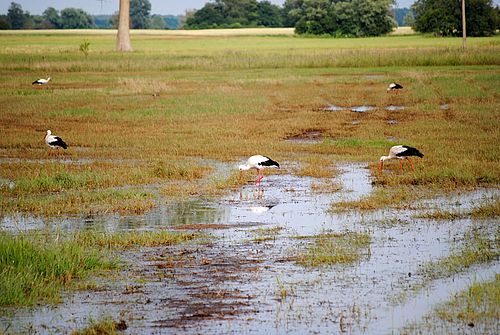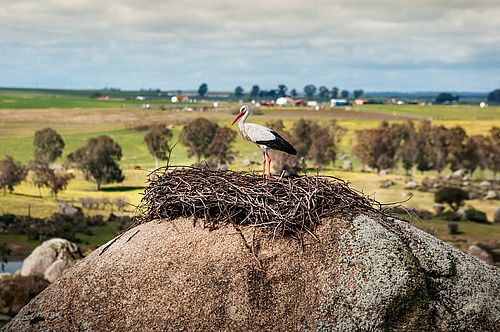Four years of successful white stork conservation
The project to preserve wet meadows and pastures has delivered great success for the white storks of Europe over the past four years. This project, initiated by EuroNatur, other nature conservation organisations, and the Stork Villages, provides an excellent basis for further approaches to protect the emblematic birds.


From Spain to Poland, storks are regarded as good luck charms and their annual return to the breeding grounds is a cheerful moment for many people. However, the storks’ habitats are not in a good state. More and more wet grassland is being turned into monotonous fields. To counter this trend, EuroNatur and partner organisations launched the wet meadow conservation project in 2014, with the Stork Villages appointed by EuroNatur throughout Europe as the flagship projects.
The stork conservationists achieved remarkable success in the communities and managed to put many habitat protection projects into effect. Among others, 145 hectares of wet grassland have been restored. The positive effects of the conservation measures even extend beyond the project areas. In addition, 22 so-called small-scale projects were sponsored in the Stork Villages, covering a wide range from tourism development and environmental education to repairs of stork nests.
Over the four-year project period, the network of European Stork Villages was not only enlarged by two communities (Taras in Serbia and Poros in Greece), but also internal knowledge transfer has been strengthened. There have been five Stork Village conferences which offered the opportunity to get in contact personally. Another milestone is the new website of the Stork Village network. This website provides information about the birds, their endangered wetland habitats and the stork conservation network initiated by EuroNatur. On the other hand, the website also serves for improving exchange among the Stork Villages.
The first project on wet meadow and pasture conservation ended according to schedule in April 2018. But the efforts on stork protection will be continued. Two follow-up projects have already been developed. One will deal once more with habitat conservation, while the other will address the problem of collisions with power lines and electrocution on power poles.
 Report sighting
Report sighting
Have you seen a white stork or another interesting species of animal, plant or fungus? Make your observation count for nature conservation and share it with other nature lovers! It’s free and it’s fun!





